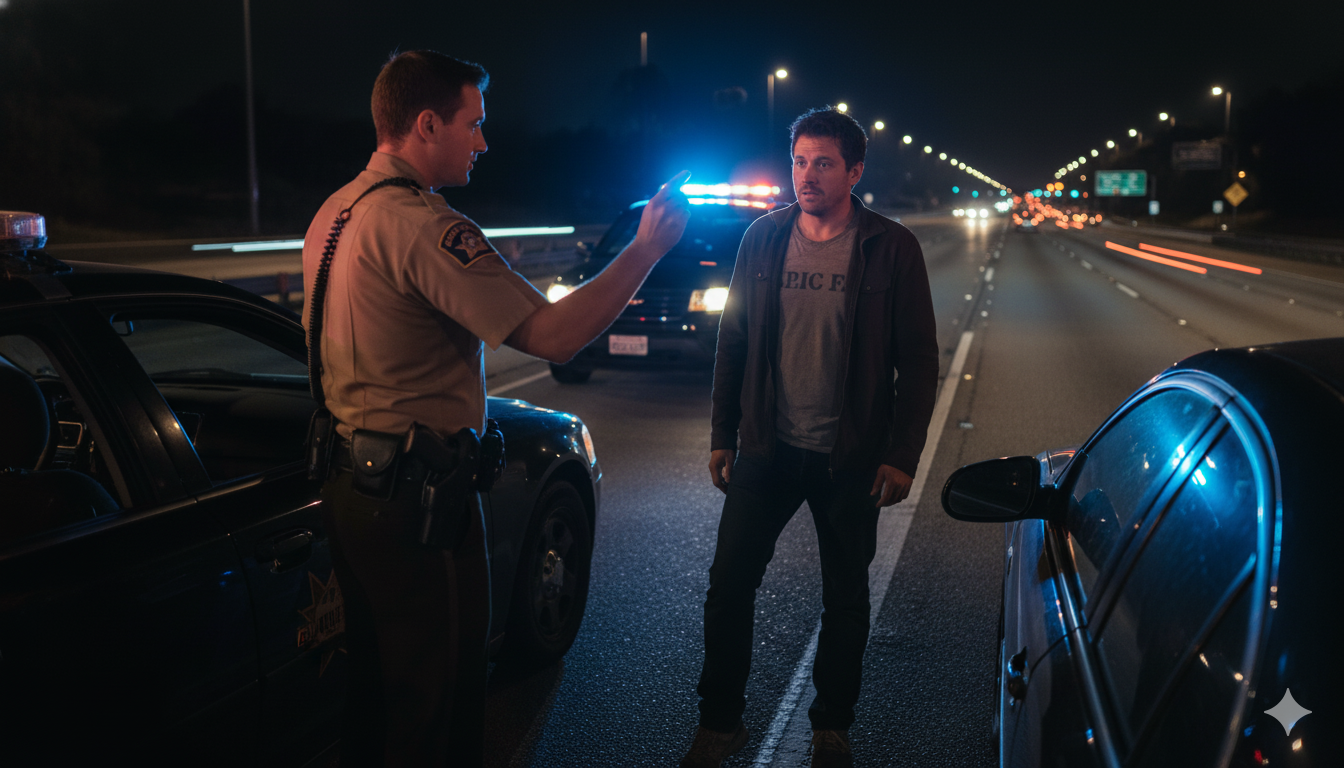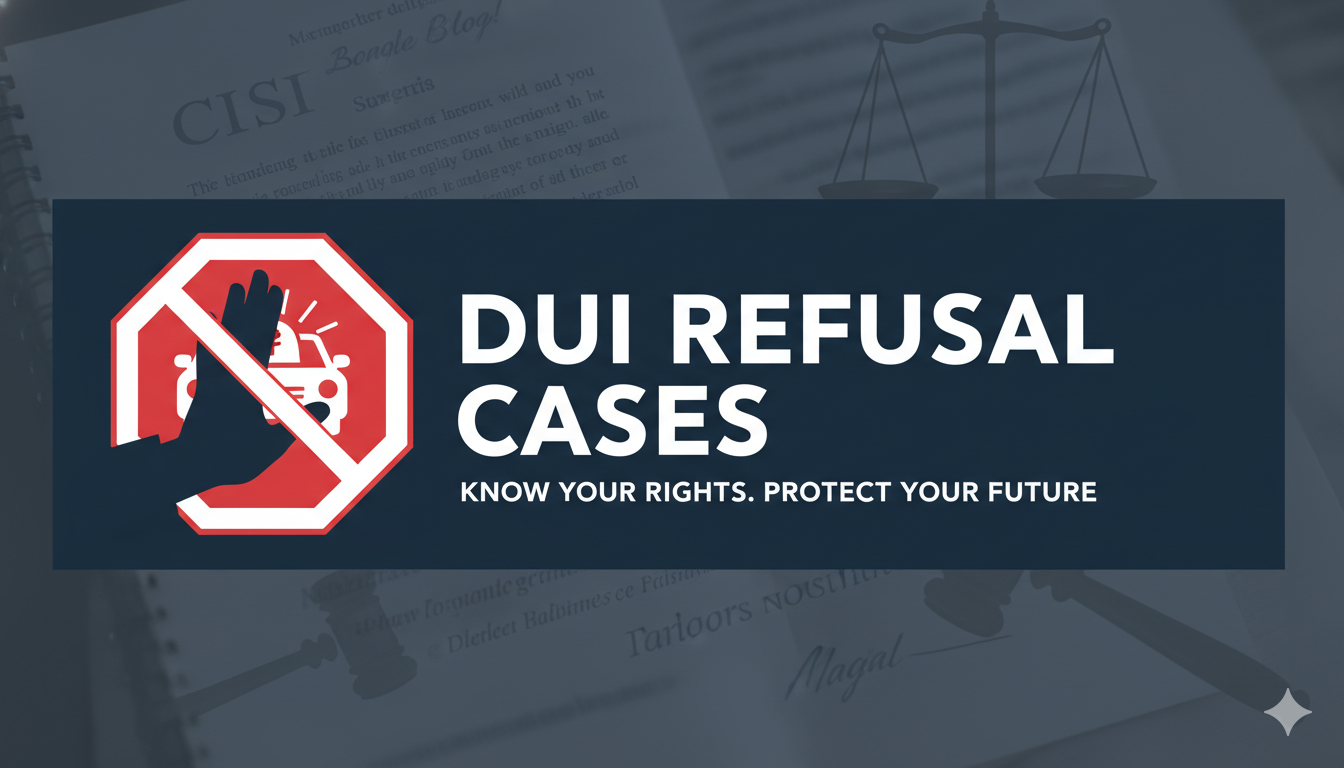Being served with a restraining order in Oceano can feel like your rights and freedom are being stripped away—but you’re not alone, and you have options to fight unjust orders. Whether you’re dealing with domestic violence restraining orders (DVRO) from ex-partners or spouses seeking tactical advantages in custody disputes, civil harassment restraining orders from neighbors, acquaintances, or strangers making false allegations, workplace violence restraining orders threatening your employment, gun violence restraining orders resulting in firearm confiscation, elder or dependent adult abuse restraining orders, restraining order violations when you’re accused of contact or proximity breaches, false allegations weaponizing the restraining order system for revenge or custody purposes, emergency protective orders (EPO) issued by Sheriff’s deputies at scenes, temporary restraining orders (TRO) issued ex parte without your input before hearings, or permanent restraining orders lasting up to five years removing you from your Oceano home and prohibiting contact with family members, understanding California’s restraining order laws under Code of Civil Procedure and specialized statutes is the first step toward protecting your rights, challenging false allegations, preserving relationships with children, maintaining your residence, avoiding firearm confiscation, and preventing permanent orders that create lasting consequences including removal from your home in Oceano, prohibition from contacting family or children, loss of firearm rights, criminal records if violations occur, employment termination, and social stigma in tight-knit coastal community where restraining orders become public knowledge affecting reputation and relationships when false allegations or exaggerated claims shouldn’t result in orders that destroy families, separate parents from children, and eliminate constitutional rights based solely on unproven accusations.
At Central Coast Criminal Defense, we’ve defended Oceano residents against restraining orders since 2010. We know the San Luis Obispo County courts where Oceano restraining order hearings are held, the judges at San Luis Obispo Superior Court who decide whether to grant permanent orders, the domestic violence and civil harassment procedures, law enforcement including Sheriff’s deputies who serve and enforce orders, and—most importantly—we know how to fight for results that protect what matters most: dismissed restraining orders at contested hearings when allegations are false or insufficient, modified orders with less restrictive terms allowing you to remain in your Oceano home, contact with children through reasonable visitation, shortened durations reducing years-long impacts, stay-away distances allowing normal daily activities, and preserved firearm rights when orders would trigger confiscation—fighting for outcomes that recognize restraining orders are often weaponized in custody disputes, divorce proceedings, and personal conflicts with false allegations or greatly exaggerated claims used to gain tactical advantages, separate defendants from homes and children, and punish ex-partners through legal system abuse when actual abuse or harassment never occurred or was mutual conduct that doesn’t warrant restraining orders permanently altering defendants’ lives, destroying parent-child relationships, and creating criminal liability for innocent contact in small Oceano community where avoiding restrained persons may be impossible when everyone shares same beaches, stores, and limited public spaces.
What Are Restraining Orders Under California Law?
Restraining orders (also called protective orders) are court orders prohibiting individuals from contact, harassment, threats, or proximity to protected persons, issued under various California statutes serving different purposes. Domestic Violence Restraining Orders (DVRO) under Family Code 6200 protect intimate partners, spouses, cohabitants, dating partners, parents of shared children, and family members from abuse defined broadly to include physical violence, threats, harassment, stalking, sexual assault, and emotional abuse—with orders requiring proving reasonable apprehension of serious bodily injury or evidence of past abuse. Civil Harassment Restraining Orders under CCP 527.6 protect individuals from neighbors, acquaintances, roommates, or strangers engaging in harassment defined as unlawful violence, credible threats of violence, or course of conduct seriously alarming, annoying, or harassing serving no legitimate purpose. Workplace Violence Restraining Orders under CCP 527.8 protect employees from workplace threats or violence. Gun Violence Restraining Orders (GVRO) under CCP 18100 temporarily prohibit firearm possession by individuals posing significant danger. Elder or Dependent Adult Abuse Restraining Orders under WIC 15657.03 protect vulnerable adults from abuse or neglect. Emergency Protective Orders (EPO) are issued by law enforcement officers at scenes lasting 5-7 days providing immediate protection, Temporary Restraining Orders (TRO) are issued ex parte (without defendant present) lasting up to 21-25 days until noticed hearings, and permanent restraining orders lasting up to 5 years are issued after contested hearings where both parties testify and present evidence with judges deciding whether preponderance of evidence (more likely than not) supports orders.
Restraining order consequences are severe and immediate: move-away orders requiring defendants leave shared residences even when defendants own homes or have equal tenancy rights, no-contact orders prohibiting all communication including phone, text, email, social media, or third-party contact, stay-away orders requiring minimum distances from protected persons’ homes, workplaces, schools, and vehicles making normal activities difficult in small Oceano community, custody and visitation impacts including loss of custody, supervised visitation only, or no contact with children, firearm prohibition and confiscation requiring surrender of all guns and ammunition, employment consequences when employers learn of orders or workplace restrictions, criminal charges for violations under PC 273.6 carrying up to 1 year jail for misdemeanor or 3 years prison for felonies, and permanent records appearing on background checks affecting housing and employment. In Oceano and throughout San Luis Obispo County, restraining orders commonly arise from domestic violence allegations in breakups, divorces, or custody disputes when ex-partners seek tactical advantages through EPOs and DVROs, neighbor disputes escalating to civil harassment claims over noise, property boundaries, or personal conflicts, dating relationship breakups where former partners claim harassment or stalking, family conflicts between parents and adult children or between siblings, and false allegations motivated by revenge, financial gain, custody advantages, or desires to remove defendants from shared Oceano homes forcing sales or allowing exclusive possession. Restraining order hearings at San Luis Obispo Superior Court involve petitioner testimony about alleged abuse or harassment, respondent defense testimony contradicting allegations, witness testimony, documentary evidence including texts, emails, photos, police reports, and medical records, and judicial determinations whether preponderance of evidence supports orders considering credibility, corroboration, and whether petitioners have reasonable apprehension of harm or past abuse occurred warranting restraining orders’ severe restrictions on respondents’ constitutional rights and freedoms.
What many Oceano residents served with restraining orders don’t understand is that temporary restraining orders are issued ex parte without hearings or defendant input based solely on petitioner’s unverified allegations requiring immediate response and contested hearings within 21-25 days to prevent permanent orders, restraining orders are frequently weaponized in custody disputes with false or exaggerated allegations to gain sole custody and exclude other parents from children’s lives, orders can be defeated at contested hearings when allegations are false, exaggerated, or don’t meet legal standards for abuse or harassment, mutual restraining orders where both parties restrain each other are disfavored but sometimes appropriate when both engaged in harassing conduct, and violations have serious criminal consequences making strict compliance essential even when petitioners invite contact or orders seem unjust. Additionally, restraining orders in small communities like Oceano create nearly impossible compliance situations when defendants and petitioners frequent same beaches, stores, restaurants, schools, and limited public spaces making accidental proximity violations likely, petitioners sometimes strategically position themselves near defendants claiming violations, and avoiding restrained persons requires defendants abandon normal activities and community presence creating isolation and hardship. California law provides defenses to restraining orders including lack of abuse or harassment when allegations don’t constitute prohibited conduct, false allegations when petitioners fabricate or greatly exaggerate claims for tactical purposes, mutual combat or self-defense when both parties engaged in physical altercations equally, constitutional speech and assembly rights protecting lawful conduct that petitioners characterize as harassment, and insufficient evidence when petitioners cannot prove allegations by preponderance of evidence requiring specific incidents with dates, times, and corroboration not mere conclusions or generalized fears. Without aggressive representation at contested restraining order hearings that challenges petitioner credibility through cross-examination, presents defense evidence including witnesses and communications contradicting allegations, demonstrates tactical motivations for false claims, proves allegations don’t meet legal definitions of abuse or harassment, and argues orders aren’t necessary or should have limited scope, you risk permanent restraining orders based on false accusations removing you from your Oceano home, prohibiting contact with your children, confiscating firearms, creating criminal liability for innocent conduct, and permanently damaging reputation in tight-knit community where restraining orders brand defendants as abusers or harassers regardless of truth when aggressive defense can expose lies, challenge exaggerations, and prevent unjust orders destroying lives and families based solely on unproven allegations that procedurally favored system makes too easy to obtain without meaningful scrutiny of petitioner credibility or tactical motivations.
- Legal Definition: Restraining orders are court orders prohibiting contact, harassment, threats, or proximity issued under various statutes including Domestic Violence Restraining Orders (DVRO) for intimate partners and family protecting from abuse, Civil Harassment Restraining Orders for neighbors and acquaintances protecting from harassment, Gun Violence Restraining Orders prohibiting firearms, with Emergency Protective Orders (EPO) issued by law enforcement lasting 5-7 days, Temporary Restraining Orders (TRO) issued ex parte lasting 21-25 days until hearings, and permanent orders lasting up to 5 years after contested hearings where preponderance of evidence standard applies requiring proof allegations more likely than not occurred.
- Why It’s Devastating: Restraining orders immediately remove defendants from Oceano homes even when they own property or have equal rights, prohibit all contact with family members including children destroying parent-child relationships, require stay-away from workplaces potentially causing employment termination, confiscate firearms eliminating Second Amendment rights, create criminal liability for violations carrying up to 3 years prison, appear on background checks affecting housing and employment, and brand defendants as abusers or harassers in Oceano’s tight-knit community creating social stigma—all based on unproven allegations issued ex parte without defendants’ testimony or meaningful opportunity to defend before TROs are granted requiring immediate response to prevent permanent orders.
- Common Situations: Domestic violence restraining orders in breakups or custody disputes when ex-partners seek tactical advantages, civil harassment orders from neighbor disputes over noise or property boundaries, false allegations in divorce proceedings for exclusive home possession or custody, dating relationship breakups where former partners claim harassment, family conflicts between parents and adult children, revenge-motivated restraining orders after relationship endings, emergency protective orders issued by Sheriff’s deputies at domestic violence scenes, and restraining order violations when defendants accused of contact breaches even when petitioners invited contact or accidental proximity occurred in small Oceano community where avoiding restrained persons may be impossible.
CRITICAL: You Have Right to Contested Hearing: Temporary restraining orders are issued without your testimony. You must request and attend contested hearing within 21-25 days or TRO becomes permanent. Do not contact petitioner even if invited—violations are criminal. Call +1 (805) 621-7181 IMMEDIATELY if served with restraining order—your home, children, and rights depend on immediate aggressive defense at hearing.
Restraining Orders We Defend in Oceano
We defend against all types of restraining orders in Oceano, San Luis Obispo County, and surrounding South County areas. Here are the orders we fight:
Domestic Violence Restraining Orders (DVRO)
- Domestic Violence Restraining Orders (Family Code 6200)
Orders from intimate partners, spouses, cohabitants, or family members alleging abuse | Most common: False allegations in custody or divorce disputes, expose tactical motivations, challenge abuse claims - DVRO in Custody Disputes
Restraining orders sought primarily for custody advantages | Strategy: Demonstrate timing correlates with custody proceedings, expose false allegations, coordinate with family law - DVRO in Divorce Proceedings
Orders seeking exclusive possession of shared Oceano homes | Tactical abuse: Demonstrate financial motivations, challenge necessity, fight for equal home access or reasonable restrictions - DVRO Based on Mutual Combat
Allegations arising from fights where both parties participated | Defense: Demonstrate mutual combat, self-defense, challenge one-sided petitioner narrative ignoring their conduct - DVRO for Verbal Arguments
Claims that arguments or yelling constitute abuse | Insufficient: Demonstrate conduct doesn’t meet abuse definition requiring reasonable apprehension of harm, free speech rights
Civil Harassment Restraining Orders
- Civil Harassment Restraining Orders (CCP 527.6)
Orders from neighbors, acquaintances, roommates, or strangers | Common: Neighbor disputes in Oceano, challenge harassment definition, demonstrate legitimate conduct - Neighbor Dispute Restraining Orders
Orders arising from property boundary, noise, or personal conflicts between Oceano neighbors | Strategy: Demonstrate petitioner’s conduct contributed to conflict, show legitimate property rights or free speech - Roommate or Tenant Disputes
Restraining orders from shared housing conflicts | Defense: Challenge harassment claims, demonstrate civil landlord-tenant dispute not criminal harassment - Dating Relationship (Non-Domestic) Harassment
Claims from brief dating relationships not qualifying as domestic violence | Civil harassment: Challenge whether conduct constitutes harassment, demonstrate mutual participation or consensual contact - Stalking Allegations
Claims of following, monitoring, or unwanted contact | Serious: Challenge whether conduct was unwanted, demonstrate legitimate reasons for presence, innocent explanations
Workplace Violence Restraining Orders
- Workplace Violence Restraining Orders (CCP 527.8)
Orders sought by employers or coworkers alleging workplace threats | Employment consequences: Termination likely, challenge threat allegations, demonstrate misunderstandings or free speech - Employer-Initiated Orders
Restraining orders filed by Oceano businesses against employees or customers | Strategy: Challenge necessity, demonstrate no actual threats, argue financial or retaliation motivations
Gun Violence Restraining Orders
- Gun Violence Restraining Orders (GVRO)
Orders from law enforcement, family, or others prohibiting firearm possession | Firearm confiscation: Fight orders demonstrating no danger, challenge evidence, preserve Second Amendment rights - Emergency GVRO
21-day emergency orders issued by law enforcement | Immediate: Request hearings, challenge danger findings, demonstrate safe responsible gun ownership
Elder or Dependent Adult Abuse Restraining Orders
- Elder Abuse Restraining Orders (WIC 15657.03)
Orders protecting adults 65+ or dependent adults from abuse or neglect | Serious: Challenge abuse or neglect allegations, demonstrate proper care, expose family conflicts or financial motivations - Caretaker Disputes
Orders against family members caring for elderly relatives | Defense: Demonstrate proper care, challenge neglect allegations, show family disagreements not abuse
Emergency and Temporary Orders
- Emergency Protective Orders (EPO)
5-7 day orders issued by Sheriff’s deputies at domestic violence or harassment scenes | Immediate: Short duration, request TRO hearings if extended, challenge at contested hearings - Temporary Restraining Orders (TRO)
21-25 day orders issued ex parte before contested hearings | Critical: Must attend contested hearing or TRO becomes permanent, prepare aggressive defense immediately - Ex Parte Orders
Orders issued without respondent present based only on petitioner’s allegations | Procedurally unfair: Prepare for contested hearing exposing false allegations, present defense evidence
Restraining Order Violations
- Restraining Order Violations (PC 273.6)
Allegations of violating stay-away, no-contact, or other order terms | Criminal charges: Misdemeanor or felony up to 3 years prison, challenge whether contact occurred, demonstrate petitioner invited contact - Accidental Proximity Violations
Unintentional presence near protected persons in small Oceano community | Defense: Demonstrate accidental contact, lack of knowledge of petitioner’s presence, geographic impossibility of avoidance - Third-Party Contact Allegations
Claims that respondent used others to contact protected persons | Strategy: Challenge whether respondent directed contact, demonstrate third parties acted independently - Social Media or Electronic Contact
Allegations of prohibited contact through Facebook, Instagram, text, or email | Defense: Challenge whether respondent sent communications, demonstrate accounts were hacked or others had access - Invited Contact Violations
Allegations when protected persons invited or initiated contact | Unfair: Demonstrate petitioner invited contact, set up respondent, argue entrapment or bad faith prosecution
Modification and Termination
- Restraining Order Modification
Requesting less restrictive terms or changed conditions | Relief: Modify stay-away distances, allow child contact, permit shared space access, demonstrate changed circumstances - Restraining Order Termination
Requesting early termination before expiration | Strategy: Demonstrate no continued necessity, show reconciliation or resolved conflicts, argue disproportionate restrictions
Mutual Restraining Orders
- Mutual Restraining Order Requests
Requesting restraining orders against petitioners who also engaged in harassment | Strategy: File responsive requests, demonstrate mutual harassment or petitioner was aggressor, seek mutual orders - Cross-Complaints
Filing separate restraining order petitions against original petitioners | Defense and offense: Demonstrate petitioner’s harassing conduct, expose false allegations, pursue protective orders
Served with restraining order? Do not contact petitioner even if invited—violations are criminal. You must attend contested hearing within 21-25 days or TRO becomes permanent. Call +1 (805) 621-7181 IMMEDIATELY—your home, children, and rights depend on aggressive defense at hearing exposing false allegations.
What’s at Stake: Consequences of Restraining Orders
Restraining orders carry devastating immediate and long-term consequences. Here’s what you face:
Immediate Restrictions
- Move-away orders requiring you leave your Oceano home immediately
- No-contact orders prohibiting all communication with family or children
- Stay-away orders requiring minimum distances from petitioner’s locations
- Custody loss when orders prohibit contact with children
- Supervised visitation only or no visitation with children
- Firearm confiscation and prohibition eliminating Second Amendment rights
- Employment termination when workplace restrictions apply
Long-Term Impacts
- Permanent orders lasting up to 5 years affecting housing and family
- Criminal charges for violations carrying up to 3 years prison
- Background check appearances affecting employment and housing
- Professional license consequences in some careers
- Immigration consequences for non-citizens
- Social stigma in Oceano branding you as abuser or harasser
- Financial devastation from legal fees, lost housing, employment termination
- Psychological trauma and family relationship destruction
⚠️ Your home, children, and rights are at stake immediately. Temporary restraining orders become permanent without contested hearing defense. Do not contact petitioner. Call immediately for emergency restraining order defense preparing for hearing within 21-25 days.
How We Fight Restraining Orders in Oceano
Since 2010, we’ve defended Oceano residents against restraining orders with an aggressive approach:
- Immediate Response and Hearing Preparation
We immediately respond when clients are served with temporary restraining orders, explain contested hearing process and 21-25 day deadline, advise on strict compliance with TRO terms even if unjust to avoid criminal violations, begin gathering evidence and witnesses for contested hearing, file responsive declarations contradicting petitioner’s allegations, and prepare comprehensive hearing strategy exposing false allegations and tactical motivations. - Investigating and Gathering Defense Evidence
We immediately investigate allegations gathering text messages, emails, social media communications, and other evidence contradicting petitioner’s claims, interview witnesses who can testify to petitioner’s aggressive conduct, mutual conflicts, or fabricated allegations, obtain police reports, medical records, or other documentation disproving abuse or harassment claims, document respondent’s peaceful character through employer letters, friend statements, and community ties, and gather evidence of petitioner’s tactical motivations including custody disputes, divorce proceedings, or revenge desires. - Exposing False Allegations and Tactical Abuse
We demonstrate through evidence and timeline that restraining order allegations correlate with custody disputes, divorce filings, or relationship breakups showing tactical motivations, present communications where petitioner threatened to seek restraining orders for revenge or custody advantages, show prior false accusations by petitioner against others demonstrating pattern of manipulation, expose inconsistencies between petitioner’s declarations and actual evidence including texts, emails, or witness accounts, and argue petitioner weaponized restraining order system for personal gain not legitimate safety concerns. - Challenging Abuse and Harassment Definitions
We challenge whether petitioner’s allegations constitute abuse or harassment under legal definitions, demonstrate verbal arguments or yelling don’t create reasonable apprehension of serious bodily injury required for DVROs, show alleged conduct was protected speech under First Amendment, prove alleged harassment served legitimate purposes or was mutual conduct, and establish petitioner hasn’t met preponderance of evidence burden proving allegations more likely than not occurred. - Demonstrating Mutual Combat or Self-Defense
We present evidence showing both parties engaged in physical altercations equally making mutual combat not abuse, demonstrate respondent acted in self-defense against petitioner’s aggression, present witnesses describing petitioner as aggressor who respondent defended against, show petitioner’s injuries were result of self-defense not unprovoked attacks, and argue one-sided restraining orders are unjust when both parties participated in conflicts. - Contested Hearing Advocacy
At contested hearings we present respondent testimony credibly explaining what actually occurred contradicting petitioner’s allegations, introduce defense witnesses contradicting petitioner’s claims and describing petitioner’s conduct, present documentary evidence including texts, emails, photos disproving abuse or harassment allegations, conduct devastating cross-examination of petitioner exposing lies, inconsistencies, and tactical motivations, and argue preponderance of evidence doesn’t support permanent restraining orders warranting dismissal. - Negotiating Modified or Limited Orders
When dismissal isn’t achievable we negotiate with petitioners and judges for modified orders with less restrictive terms, argue for peaceful contact allowances permitting communication about children or shared property, negotiate stay-away distances allowing respondents to remain in Oceano community and access normal locations, secure child custody and visitation provisions despite restraining orders, and minimize order durations obtaining shortest terms possible reducing years-long impacts. - Coordinating with Family Law Cases
When restraining orders arise in custody or divorce contexts we coordinate with family law attorneys addressing both restraining order and family law proceedings, challenge restraining orders as tactical abuse in family court, present unified defense strategy across both proceedings, and demonstrate to family court judges that criminal restraining order allegations are false or exaggerated not warranting custody or visitation restrictions. - Defending Restraining Order Violations
When clients are accused of violating restraining orders we challenge whether prohibited contact actually occurred, demonstrate petitioner invited or initiated contact entrapping respondent, show contact was accidental or respondent lacked knowledge of petitioner’s presence in small Oceano community, prove communications weren’t sent by respondent but by others accessing accounts, and defend criminal violation charges aggressively to avoid convictions carrying up to 3 years prison. - Pursuing Modification and Termination
After restraining orders are issued we file modification petitions requesting less restrictive terms when circumstances change, pursue early termination before expiration dates when conflicts resolve, demonstrate continued orders are unnecessary based on reconciliation or lack of ongoing issues, and seek relief from overly burdensome restrictions disproportionate to actual circumstances.
Our Oceano restraining order defense practice has resulted in numerous dismissed restraining orders at contested hearings exposing false allegations, modified orders with less restrictive terms allowing clients to remain in homes and maintain child contact, shortened order durations reducing years-long impacts, negotiated peaceful contact allowances for child custody communications, preserved firearm rights by defeating gun violence restraining orders, dismissed restraining order violation charges demonstrating invited contact or accidental proximity, and helped countless Oceano residents avoid permanent orders based on false allegations or exaggerated claims. We understand that restraining orders are frequently weaponized in custody disputes with false domestic violence allegations to gain sole custody excluding other parents, divorce proceedings where one spouse seeks exclusive home possession forcing other from shared Oceano property, revenge situations where vindictive ex-partners use restraining orders to punish former partners, and neighbor conflicts where disputes over property or noise escalate to harassment claims—and that many restraining order allegations involve mutual combat where both parties participated, verbal arguments that don’t constitute abuse, protected speech characterized as harassment, or greatly exaggerated claims where minor incidents are portrayed as serious abuse creating false narratives requiring aggressive challenge through cross-examination and defense evidence. Many Oceano residents we represent facing restraining orders are completely innocent of abuse or harassment allegations, acted in self-defense against attacking petitioners, engaged in mutual conflicts no worse than petitioners’ conduct, or committed no harassment beyond exercising constitutional rights that petitioners seek to suppress through restraining orders—and we fight aggressively at contested hearings to expose false allegations through cross-examination, present defense evidence contradicting petitioner narratives, demonstrate tactical motivations for restraining order abuse, challenge whether allegations meet legal definitions of abuse or harassment, and prevent permanent orders that would remove clients from Oceano homes, separate them from children, confiscate firearms, create criminal liability for innocent conduct, and permanently brand them as abusers or harassers in tight-knit community where reputations once destroyed are nearly impossible to rebuild when restraining orders based on unproven allegations shouldn’t destroy families and lives without meaningful scrutiny of petitioner credibility and respondent’s right to defend against accusations.
When restraining orders threaten your home, children, and rights in Oceano based on false allegations or tactical abuse, you need more than just legal representation—you need an advocate who fights aggressively at contested hearings exposing lies and protecting your family. That’s exactly what you get with Central Coast Criminal Defense.
Get Your Free Consultation Today
Don’t wait if served with restraining order. Do not contact petitioner even if invited. You must attend contested hearing within 21-25 days or temporary order becomes permanent. Call now for immediate restraining order defense consultation preparing aggressive hearing strategy protecting your home, children, and rights in Oceano.












